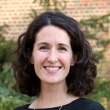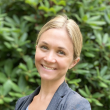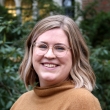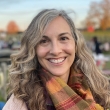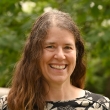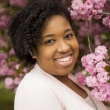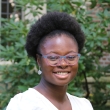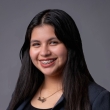Susan L. Wagner ’82 Career Advising Program
The Susan L. Wagner ’82 Career Advising Program
What do you want to be when you graduate? Rest assured that most Wellesley students are unsure about their career paths and even those that feel certain often do — and should! — change their course. When beginning your career journey, it can be tempting to imagine that it will be one straight line. However, as countless alums will tell you, that’s not the way it works — and that’s a good thing! As the Bureau of Labor Statistics reports, the average worker will have 12-15 jobs in 5-7 different career fields in her lifetime.
Career Exploration
Regardless of what year you are at Wellesley, we are here to help you explore potential career paths. Every student is matched with an Advisor for Career Exploration (ACE), who is available for conversations about your values, strengths, and interests. Your ACE will provide the mentorship, tools, connections, and space for self-assessment and reflection to identify the paths you want to pursue. Schedule an appointment in Handshake to meet with your ACE as follows:
- First Years & Juniors: Marisa Crowley, ACE for the Class of 2026 & 2028
- Sophomores & Seniors: Ariane Baker, ACE for the Classes of 2025 & 2027
Career Advising for Specific Industries and Fields
You may already have some inclination about what industry or field you might like to work within. You also may still be quite uncertain — and that is both normal and completely okay! You don’t need to know exactly what you want to do to meet with a specialized Career Advisor — simply having curiosity about a field or industry is a great place to begin.
To meet with an industry/field specific Career Advisor, make an appointment in Handshake by selecting “Career, Internship, and Graduate School by Industry/Field.“ If you aren’t sure which Advisor covers your field of interest, email careereducation@wellesley.edu and we’ll point you in the right direction! The categories are broadly encompassing, so no matter what your career interests are, there is an Advisor who can work with you to explore the fields you are considering.

Sign up for Industry newsletters by filling out your Career Interest profile in Handshake. You’ll receive advice specifically related to the industries of your interest, along with highlighted events, resources, jobs, internships, and fellowship opportunities in your field of interest. Subscribing to multiple newsletters is a great way to explore career options!

Career Essentials: Resumes, Cover Letters, Interviews, & More!
Through the Career Essentials workshop series, you will develop skills and the foundational knowledge necessary to navigate career development. Learn about resumes, cover letters, interviewing, informational interviewing, negotiation, and personal statements.
Recruiting Timelines for Specific Industries and Fields
Many industries have different recruiting schedules—learn about timelines and career paths, and explore your interests with the help of our industry/field specific Career Advisors, and through the drop-downs below!
Career Advisors

Embark: First Year Career Retreat
Embark — a retreat for all interested first-year students — is a free weekend-long immersive program designed to equip you with a toolkit to begin your career exploration. Join us to connect with Career Education, discover how to identify and utilize your values and strengths through our assessments and activities, hear career stories from your Wellesley sibs, and learn about the variety of opportunities that are available to you as a Wellesley student, like funded internships, study abroad, and research.
Peer Career Mentors
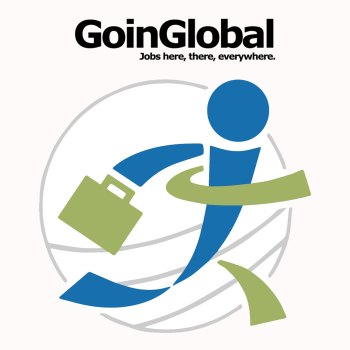
Explore Employment Around the World with GoinGlobal
GoinGlobal is the leading provider of both country-specific and USA city-specific career and employment information. Our unlimited access subscription database features 38 Country Career Guides, 53 City Career Guides for the United States and Canada, corporate profiles and more than 16 million internship and job listings within the USA and around the world.
Knight-Hennessy Scholars Program (seniors & graduates)

Offers full scholarships for any graduate or professional degree offered at Stanford University, plus leadership development, aimed at preparing leaders to find creative solutions for the world's greatest problems. Eligible are graduating seniors and recent graduates, from any country. Apply to the Knight-Hennessy by their deadline in early October, and to the Stanford degree program of your choice by the deadline for that program.
The Susan Rappaport Knafel ’52 Scholarship for Foreign Study or Traveling Fellowship (seniors)

Scholarship for Foreign Study – up to $36,000
The scholarship will be awarded to a member of the graduating class who displays a desire for learning and an ability to impart knowledge and judgment to others. It will fund a year of study at a foreign institution to pursue a specific subject that requires contact with foreign scholars, libraries or other resources.
Traveling Fellowship – up to $36,000
The fellowship will be awarded to a member of the graduating class who displays an interest in and an acceptance of others, and who displays the ethos of a Wellesley education. It will fund a year of purposeful travel abroad to explore a particular interest with the requirement that the recipient not remain in the same area for more than two months.
Elisabeth Luce Moore ’24 Wellesley-Yenching Fellowship at Ginling College in Nanjing (seniors & graduates)

Each year the Wellesley-Yenching Program sponsors two English teaching fellowships in cooperation with Ginling College, part of Nanjing Normal University in Nanjing, China. Wellesley College seniors or graduates are eligible to apply for this one-year fellowship which can be extended to a second year. The Wellesley-Yenching Committee interviews applicants, then sends the credentials of one or two nominees for final approval by Ginling College.
Barry M. Goldwater Scholarship (sophomores and juniors)

Supports one or two years of undergraduate study in the fields of mathematics, engineering, and natural sciences. Eligible are college sophomores or juniors who are US citizens, permanent residents, and nationals intending to pursue research careers in STEM fields. Campus application deadline typically in late November/early December.
Projects for Peace (students)

Created in 2007 by Kathryn Wasserman Davis (Wellesley College '28), the Projects for Peace program offers undergraduates and graduating seniors funding to design a grassroots project for the summer of 2024—anywhere in the world — that promotes peace and addresses the root causes of conflict among parties. Projects may employ innovative techniques for engaging project participants in ways that focus on conflict resolution, reconciliation, building understanding and breaking down barriers that cause conflict, and finding ways to resolve conflict and maintain peace. Any current Wellesley student is eligible to apply. Campus application deadline typically in January.
Resources for Underrepresented Students and Alumnae Applying to Health Profession Schools
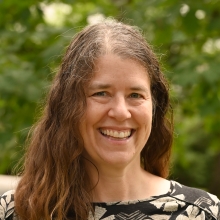
A crucial topic in healthcare today is how to eliminate inequities in the quality and availability of medical care for ethnic, racial, social, and economic minorities. There is an urgent need to increase both the diversity and cultural competence of our health care workforce.





